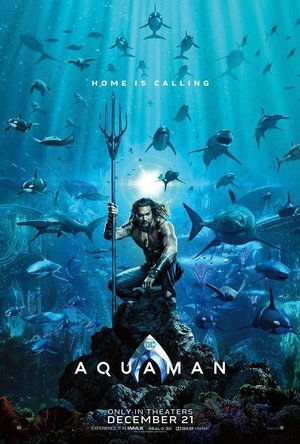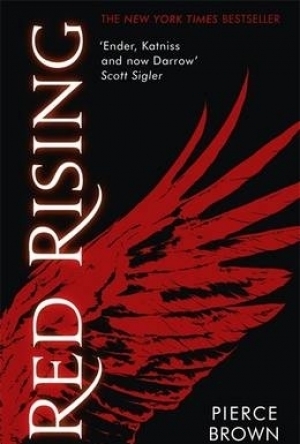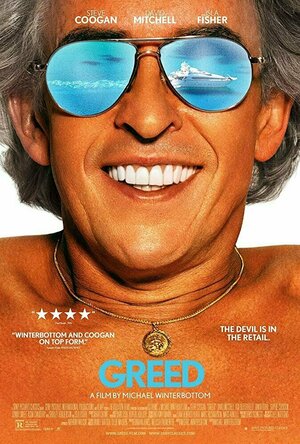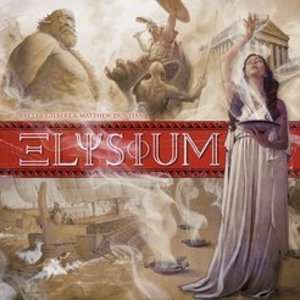
Scanner Pro by Readdle
Business and Productivity
App
Scanner Pro is the best app for quickly scanning and saving a digital version of a paper document....

Loecsen - Audio travel phrasebook
Travel and Education
App
7 key features of the app: 1 - 400 phrases, arranged by theme, to help you get by in 40 languages...

My Dictionary Pro
Education and Entertainment
App
Do you want to learn a foreign language quickly? A unique program for memorizing words will help you...
Ryan Hill (152 KP) rated Aquaman (2018) in Movies
Jun 8, 2019
Instead Wan and the writers behind Aquaman intelligently focus on world-building and following the tried-and-true "heroic journey"; complete with initial rejection of a prophesied role, slow but steady immersion into said role's culture, recognition of the need for growth and change, and eventual assumption of role. It's been seen before and it'll be seen again. But what propels Aquaman ahead of other films like it is the energy that Wan imbues it with. It's goofy without undermining the sincerity of Arthur's journey. It's fast-paced and simple-minded without sacrificing the weight and universality of this particular hero's myth. It's loud and colorful and *full* of CGI everything without reducing itself to an over-commercialized, artless heap of nothingness.
It's a big-ass blockbuster with personality. Momoa has charisma to spare; he owns the physicality and irreverence of this new imagining of the king of the ocean perfectly. Amber Heard is sexy and badass as Mera; something of a victim of a forced romance but also a compelling and strong protagonist in her own right. Patrick Wilson as Oceanmaster (call me....Oceanmaster) is given enough screen-time to develop that he's more than a punching bag for Aquaman; but actually a character with ambitions and a defined, fleshed-out purpose. The origin segment is tightly done and more than enough to set the stage for what is to come. And probably the strongest aspect of this picture, the costuming and world-building, is off the charts. Similar to the enduring fantasy films that precede this (LOTR, Star Wars, Avatar for a few examples) the undersea kingdoms are a place I want to return to. They aren't just my world dressed up with CGI and the occasional costuming flourish; they're entirely foreign and endlessly inventive. Probably a solid third of the film is simply Aquaman, and the audience, being told about this world and shown it by Mera. While that may not be artistically prestigious strategy for engaging audiences, it entertains and fascinates on a "turn off your brain and look at those pretty colors" sort of way. There's a simple glee in seeing sharks ridden like horses or an octopus pounding a war-time set of drums.
I always offer the disclaimer when writing about nerdy films that I love which is this: I am a nerd. While I wasn't particularly attached to Aquaman growing up; his journey, the nature of this sort of film and the cinematic universe he will be growing into are fundamentally important to me, and I like to embrace that bias rather than keep it in check with reduced ratings or "objective" analysis. Whether it be a giant, confusing and chaotic battle between underwater armies or the horrifying descent into "the trench"; you'll always find me looking up at the screen like a little kid. Or moments like Arthur meeting Mera and confronting is past, or taking upon the role of king while wielding the trident; I just love that sort of stuff. I'm a sucker for these beats and this formula; and all signs point to this continuing. So while I may like it more than most; I'd mostly like to say Aquaman still distinguishes itself as a particularly goofy, sprawling, mythic, and metal experience that deserved to be seen on the big-screen, and to be celebrated as the fantasy film it is. It's a great time, and a nice addition to the DC film franchise.
Heather Cranmer (2721 KP) rated The Curse of Betrayal (Curse Books, #2) in Books
Jun 7, 2018
You know when you read the second book in a series, and think how much better the first book was? Well, this isn't the case with The Curse of Betrayal! In fact, I think this book was even better than its predecessor. I believe The Curse of Betrayal could be read as a stand alone, but it'd be much more enjoyable if you read The Thousand Year Curse which is the first book in the series.
I like the title. Ryder does feel a bit betrayed by her mother and someone else (to tell would be spoilers) in the book.
Like the first book, I'm not a fan of the cover of this book either. It's just too plain for my liking, and for those that do judge a book by its cover (of which I have been guilty before), I think it will put them off reading this AMAZING book!
I enjoyed the world building. It seemed as if a place like the Demi God Academy could really exist. Plus, the world in this book answers most of my questions from the first book. The world building is definitely interesting in this book!
The pacing is spot on! I loved every page and couldn't wait to find out what would happen next. Even in the pages where there was no action, it was still very gripping.
The plot is just as interesting, if not more interesting, as the first book. In this book, we learn more about Ryder, Ryder's elusive mother, and Ari as well as a new cast of characters. We get to see Ryder's first year at Demi God Academy, and let's just say it is anything but uneventful. Ryder is still trying to work out her curse and find out which man is her soul mate. There's also another added danger that I won't go in to due to spoilers.
Miss Lavati does an excellent job of making sure her characters are well written and able to come to life. While I liked Ryder and found her to be a well rounded character, I thought she was being a bit too whiny and selfish with double standards. For example, it's okay for Ryder to flirt with and kiss both Ollie and Ari, but when one of them does it with another girl, Ryder gets insanely jealous. (There's one scene at a restaurant where this is very apparent and a bit over the top). I do feel bad for Ryder though. While some may think it'd be amazing to have two hot guys pine after your affections, Ryder doesn't want to hurt either one of them and hates seeing each one miserable. Plus, her life is in danger thanks to the curse Hades has put on her. I was glad that Ari was featured a lot in this book because I'm definitely Team Ari, and I really want Ryder to pick him. Ari is just a smooth kind of guy. He's funny and witty. Ollie is in the book just not as much as Ari. I do like Ollie also, but just not as much as Ari. Ollie is very caring and everything, but I just feel like Ari would make a better boyfriend. I also liked Kara in this book. She was such an awesome best friend, and I loved the way she really cared about Ryder.
The dialogue fits perfectly for a mature young adult/new adult book. I enjoyed every single scene. There are a few grammatical errors, but it doesn't take away from the book at all. There's also swearing and sexual references, but nothing over the top.
Overall, The Curse of Betrayal by Taylor Lavati is a fantastic read. This book has a great cast of characters, a super interesting plot, and a very immersive world. Miss Lavati is a very talented writer, and I enjoy reading her work. Will I be reading the next book in the series? Most definitely!
I'd recommend this book to those aged 17+ who enjoy reading about Greek mythology, hot guys, and/or great characters.
<b>I'd give The Curse of Betrayal (Curse Books #2) by Taylor Lavati a 4.75 out of 5.</b>
Hazel (1853 KP) rated Red Rising in Books
Dec 7, 2018
<i>Red Rising</i> by debut author Pierce Brown is a very difficult book to review. It is clear that Brown is an excellent writer with amazing ideas, but at the same time it does not feel possible to rate the book any higher that two or three stars. This first book of three is somewhat alike <i>The Hunger Games Trilogy</i> by Suzanne Collins and has some very exciting themes. However at other times it provoked a range of emotions from disgust to almost verging on boredom.
Set thousands of years in the future, the world has become colour coded. Gold are the elite, the ruling colour, and at the bottom of the pile are the Reds. Darrow is a Red and lives below the surface of the planet Mars in the mines with the responsibility of helping to make the planet’s surface habitable for humans in the future. He soon discovers that the ruling societies have been lying to him all his life, and to the many generations before him. But there is an uprising brewing and Darrow has been chosen to play a vital role in it, even though that means pretending to be the enemy.
Although it was difficult to get into the novel it appeared to be clear what the plot would be about. Wrong! Once Darrow has been trained to behave like a Gold the storyline changes completely. It is almost as though it is a different book altogether. <i>Red Rising</i> suddenly becomes <i>Hunger Games-esque</i> and the situations with the Reds, while being referred to once or twice, was all but forgotten. Presumably those original themes will continue within the final books of the trilogy.
Living under the surface of Mars with no sunlight speeds up the aging process of the inhabitants. People in the thirties are considered old; therefore even though Darrow is a teenager in Earth years, he is portrayed as a man – an image that is difficult to shake off throughout the entire book. Once Darrow is living with the Golds and, supposedly, resembling his true age, it is still easy to forget that he is young. This may change the way the reader pictures the scenes compared with how the author intended them to be imagined. The characters are still only children but may be mistaken for adults due Darrow’s opening scenes.
It cannot be denied that Brown is a very knowledgeable writer. As well as writing in an exceptionally well-structured way, he incorporates a vast amount of high culture into his story. A lot of the novel is influenced by Greek and Roman mythology and he also quotes famous philosophers such as Cicero and Plato. So despite its science fiction genre it also has a slight educational nature.
Something interesting about <i>Red Rising</i> was the character development of Darrow. At the beginning he was rather naïve, believing everything he was told, following orders etc. But soon he becomes more confident, clever, Gold-like. However he then becomes like a wild beast, killing to survive, to win. Thankfully his cleverness takes control and he realizes that he needs to become a leader and not a tyrant. Towards the end he even becomes messiah-like. As Darrow progresses through these changes he becomes a more likable character.
I am not sure whether I want to read the next installment of <i>Red Rising</i>. For the beginning storyline to continue and become the main focus, the book would need to be completely different. This could be a good thing because, as mentioned, there were times when it was a little boring, however there’s the risk that it will not feel like a follow on from the first book. I do not want to put anyone off from reading it, but I will honestly say that it was not really what I was expecting.
Lee (2222 KP) rated Greed (2019) in Movies
Jan 29, 2020
It's 5 days until the party. Construction on a huge wooden Colosseum is progressing slowly, and a nearby caged lion is to be involved in a series of gladiator themed games for the event. Although, as McCreadies moody teenage son (Asa Butterworth) snarkily points out, it was actually tigers that featured in the movie Gladiator and not lions. Discussions are also taking place as to where the firework display will be and where Fatboy Slim and Coldplay will be performing, overseen by McCreadie himself, all fake tan and bright white teeth. His first wife (Isla Fisher) arrives with her new partner and everyone is under pressure to be ready in time.
We're taken right back to the beginning and Richards public school years. A rather unpleasant young Richard (Jamie Blackley) is back-chatting his teachers and playing cards with the other students for money. When his mother (Shirley Henderson) is called into the school, there is a heated exchange in the headmasters office and Richard ends up leaving the school. We then follow him out into the big wide world, wheeling and dealing in the fashion business, confident and persistent until he has managed to land himself a small shop and enough stock to start undercutting some of his nearby rivals. It's not long until Richard is heading out to Sri Lanka, meeting up with sweatshop managers in order to play them off against each other for the lowest possible price in order to secure himself a huge profit. As Richard grows up into the version played by Coogan, there continues to be a steady stream of different clothing shops, big ideas, dodgy deals and plenty of mishaps for him to tackle in what are some of the films funnier scenes.
Greed takes a real scatter-gun approach to plots and scenes, which for the most part don't really work. There is a completely pointless and dull subplot involving a reality TV show that's being filmed on and around the beach, with another concerning a group of Syrian refugees who have the cheek to be camped out on the beach where the party is due to take place. We zip back and forth in time, occasionally dipping into a hearing regarding Sir Richard's tax avoidance antics over the years and there's never really enough time, or enough of a decent script, to make any of it very interesting or funny. The character of McCreadie, who is clearly loosely based on Topshop CEO Philip Green, is basically just a variation of Alan Partridge, slightly different voice, some extra swearing and anger thrown in, only less funny. The movie even features Tim "Sidekick Simon" Key from the Partridge shows as an exasperated employee, trying to keep the building of the Colosseum on track with a diminishing workforce. There are plenty of celebrity cameos shoehorned in too and the whole thing is just very hit and miss. But mostly miss.
Greed concludes by showing us some pretty sobering facts and figures. We're informed that the 26 richest men in the world hold more wealth than that of the 3.6 billion poorest combined. We learn just how little the women in countries such as Sri Lanka and Bangladesh earn in return for their long days putting together high street clothes, while the biggest names in retail turnover millions in profits each year. And we hear about the plight of the Syrian refugees trying to make their way to Greece. The greed and injustice of it all really hits home, and it does so far more effectively here than during the the rest of the movie.
Purple Phoenix Games (2266 KP) rated Elysium in Tabletop Games
Aug 3, 2021
Elysium is a set collection card drafting game for two to four players. Each player will be attempting to complete the greatest collection of Legends written and subsequently transferred to their Elysium (Ancient Grecian version of heaven) for Victory Points. Whomever weaves the greatest Legendary tapestry will emerge victorious and really have a story to tell.
To setup, follow the instructions in the rulebook, but a three player game should look similar to what is pictured above. Players will receive their own player board, starting VP tokens and gold, and a set of columns. Cards from five different Grecian families will be shuffled and displayed in The Agora (middle of the board and the place to draft the cards). Once setup the game may begin.
Elysium is played over five Epochs (rounds) and each Epoch is divided into four phases. Phase I is Awakening, which is simply setting up The Agora for the new Epoch by removing all existing cards there and revealing more. Phase II is Actions, where players will be using their columns to draft cards from The Agora (as long as the color of column matches one of the icons on the card) and taking at least one Quest tile (also denotes player order for the next Epoch). Phase III is Writing the Legends, where players will redistribute the player order discs, receive gold and VP per their Quest tile, and transfer any cards from their Domain – active holding area – to their Elysium for VP at game end. Phase IV is End of Epoch, where players will perform basic cleanup tasks to prepare for the next Epoch of play. Play will continue in this fashion until the end of the fifth Epoch and players tally their final VP to determine the greatest Legend-crafter in all the land!
I know this is a VERY brief summary of what is done during the game, but Elysium has many card effects and combos to consider that I just cannot detail here for fear of readers falling asleep or my fingers falling off.
Components. Elysium has simply an incredible aesthetic. The non-card components certainly radiate ancient times and the art on the cards is breathtaking. Every piece is very high quality, which is something I have grown to expect from Space Cowboys games. The columns are fun to hold and move, and as a whole is just visually stunning. I love playing this game and seeing it all out on the table.
Obviously we place our ratings on the very first graphic you see so it is no surprise by the time you read down here, but I love Elysium. Like I mentioned in my open it was in my Top 10 for quite a while, and for very good reasons. First, I love games that simply LOOK good. Is that shallow? Maybe, but it’s what I like. Second, I love the card interplay and combo potential in Elysium. Chaining together cards to build small engines is always fun and provides so much replayability by never really being able to experience every card combo in the box. Finally, it has great components and a theme that speaks to me and my personal interests. It feels like a game that was meant to be played by me specifically. When you find a game like that you have to give it high ratings.
So if you are at all like me and enjoy games with a great theme, excellent art and components, and intriguing replayability, then certainly grab a copy of Elysium. Purple Phoenix Games gives it an Olympus-sized 11 / 12. So many Ancient Greece themed games exist and Elysium is simply one of the best.

Prayer Prompter - Christian Prayer App
Productivity and Lifestyle
App
A God-centered, worship-based prayer app that stores and organizes Scripture passages and prayer...
Bob Mann (459 KP) rated Mamma Mia: Here We Go Again! (2018) in Movies
Sep 29, 2021
Which brings us spoiler-free to the start of “Mamma Mia! Here We Go Again”, typically shortened by everyone to “Mamma Mia 2”, the sequel to the enormously successful cheese-fest (and Bros-fest) that was the first film, now – unbelievably – 10 years old.
Sophie (Amanda Seyfried) is trying to open the Bella Donna hotel on that magical Greek island separated from her husband Sky (Dominic Cooper) who is learning the tips of the hotel trade in New York. As preparations for the opening party progress we flash back to the back-story of Donna (as a post-graduate played by Lily James) as she meets Harry (Hugh Skinner, “The Windsors”, “W1A”), Bill (Josh Dylan, “Allied”) and Sam (Jeremy Irvine, “War Horse”) en route to Greece.
If you remember the first film and thought Donna (Meryl Streep) was a bit of a… erm… ‘loose woman’, then this plot point could have been amplified by seeing the “dot, dot, dot” acts in the flesh, as it were. Fortunately, in steps Lily James as the young Donna who is so mesmerisingly gorgeous and vivacious that you can forgive her just about anything. “Beguiling” was the description my better half came up with, and I couldn’t describe her better. Supporting her effectively are Alexa Davies (as the young version of Julie Walters‘ character) and Jessica Keenan Wynn (as the young version of Christine Baranski‘s character). The trio’s exuberant performance of “When I Kissed the Teacher” sets the tone well for the grin-fest to follow. (By the way, if you are a Mary Poppins fan then a bit of trivia is that Wynn is the great-granddaughter of Ed Wynn, the character who “Loved to Laugh” on the ceiling!).
In these days of drought, Trump vs the world, Brexit and universal bruhaha, this is a much-needed joyful film, and far better I would say than the original. A good story, well executed and stuffed with excellent tunes. True, apart from a number of key repeats, we are more in the territory – in CD terms – of “More Abba Gold” than “Abba Gold”, but Bjorn and Benny’s B-sides are still better than many other’s A-sides. What’s really nice is that the songs are well chosen to mesh better into the story and the lead singing of Seyfried and James is uniformly excellent. Pierce Brosnan gets to sing (no, no, come back!) but it is cleverly low-key and genuinely touching. And as for Celia Imrie, you’re a legend and we forgive you!
It’s also far better at finding both humour and pathos than the original, with the splendid Hugh Skinner exhibiting perfect comic timing and comedian Omid Djalili being very funny (stay to the end of the end-credits for a very funny monkey). National treasure Julie Walters also adds excellent comic content, particularly in a number of dance scenes.
And as for the pathos, if the duet at the finale doesn’t move you to tears you are either made of rock or are immune to being shamelessly manipulated! It’s a well-scripted convergence of grief and joy (I feel Richard Curtis‘s hand in the story here) around one of Abba’s most beautifully tear-jerking songs. I will admit to you – don’t tell anyone else – that I was left in a complete mess… another reason to sit through the end titles!
At the elderly end of the cast list Andy Garcia is magnificent as the South American hotel manager Mr Cienfuegos (you’ll NEVER guess what his first name is!) and Cher (“Moonstruck”) literally rocks up trying hard to steal the show as Sophie’s Vegas superstar grandmother.
Directed and scripted by “Best Exotic Marigold Hotel” director Ol Parker (the lucky guy who is married to Thandie Newton!) it drips with cheese again, but who cares when it is so stylishly done. Should you see this? The test is simple: if you hated “Mamma Mia” then you will hate this one; if you loved “Mamma Mia” you will simply adore this one.





